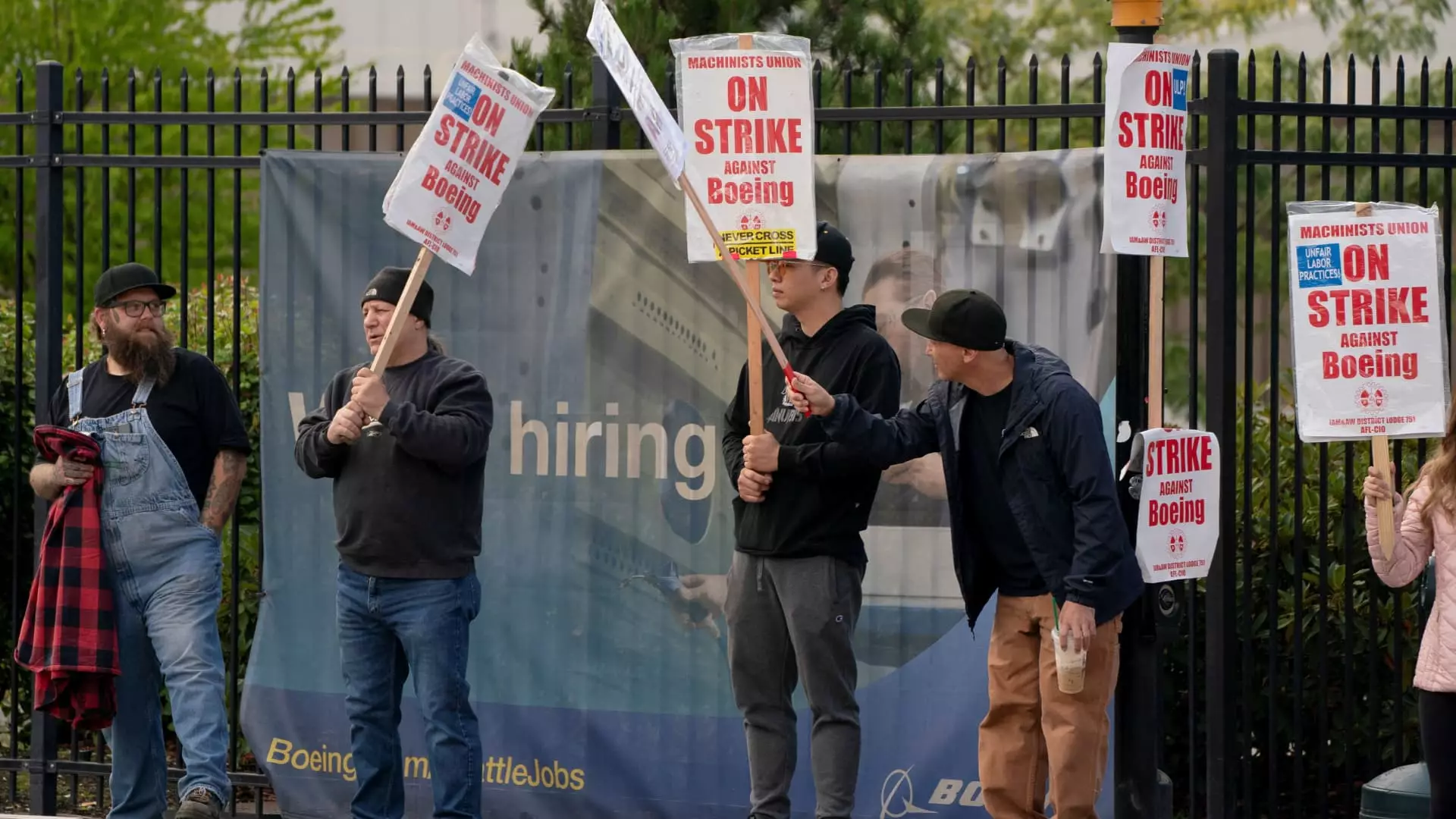Boeing is undergoing a significant upheaval as it grapples with the impacts of a labor strike involving over 30,000 factory workers. This disruption follows the rejection of a tentative labor agreement, which has led to a near-complete stoppage in aircraft production, particularly affecting operations in the Seattle area. With these challenges at the forefront, Boeing’s leadership is implementing drastic measures to stabilize its financial situation amidst growing concerns.
In a bid to mitigate the financial fallout from this labor dispute, Boeing has announced a series of cost-cutting initiatives. These include a hiring freeze, restrictions on nonessential travel for staff, and significant reductions in spending with suppliers. CFO Brian West indicated that Boeing will cease most purchase orders related to its key aircraft models, including the 737 Max, 767, and 777. This decision marks a primary indicator of the potential ripple effects the strike may have on Boeing’s extensive network of suppliers, many of whom are significantly reliant on contracts with the aerospace giant.
Despite the current turmoil, Boeing is committed to returning to the bargaining table with union representatives. The company’s CFO emphasized the importance of collaboration to forge a new contract that would address the workforce’s concerns. West reassured employees and stakeholders alike that Boeing’s priorities remain aligned with safety, quality, and customer support, even in these trying times. However, the looming specter of financial strain necessitates aggressive cash preservation strategies.
Financial analysts are closely monitoring the situation, aware that the length and intensity of the strike will determine its broader impact on Boeing’s finances. Recent assessments by credit rating agencies, including Moody’s and Fitch Ratings, signal that prolonged strife could result in downgrades to Boeing’s credit ratings, thereby increasing borrowing costs. This is particularly concerning for a company already grappling with substantial debt, having reported a dramatic cash burn of approximately $8 billion in just the first half of the year.
As Boeing navigates this complex landscape of labor disputes and financial pressure, the prospect of temporary furloughs looms large for many employees. These difficult decisions underscore the seriousness of the situation and its potential for long-lasting repercussions throughout the company’s workforce. Moving forward, fostering sustainable relationships with employees while ensuring operational continuity will be vital for Boeing’s recovery.
Boeing stands at a pivotal moment, facing the dual challenges of a significant labor strike and the pressing need to control financial outflows. The company’s response will not only determine the immediate recovery from this crisis but also shape its long-term viability in the fiercely competitive aerospace sector. The coming weeks will be critical as Boeing seeks to mediate differences and secure a more stable future.

